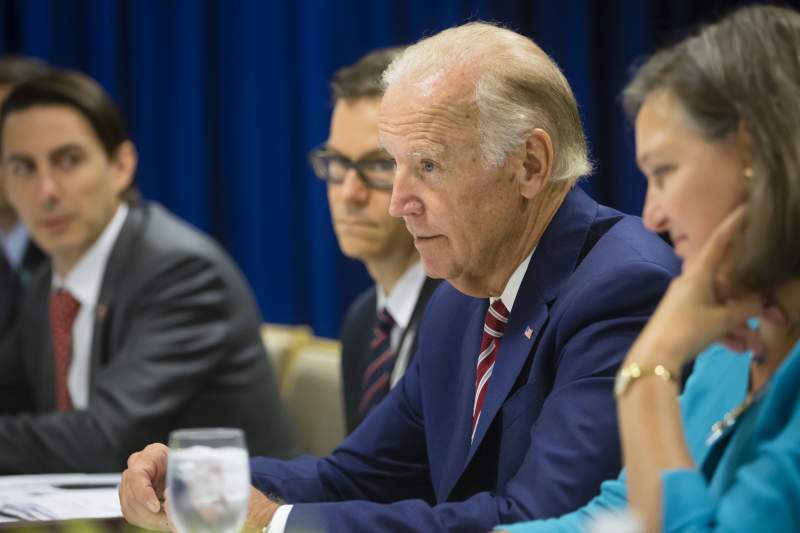Published On: January 29, 2021

President Biden wants to reform the immigration system
Published On: January 29, 2021

President Biden wants to reform the immigration system
President Biden started his presidency with a slew of executive orders. There were 5 executive orders that were related to immigration. Let’s look at each order and how it affects you as an immigrant.
The Trump administration partially blocked the DACA program back in July 2020 where only renewals were allowed till congress approved a different approach. But a judge ordered to fully restore the DACA program to process newly signing up DACA recipients in December.
Since then USCIS has been accepting new DACA recipients. Also, the validity of DACA and the employment authorization has been restored to the older validity of 2 years. The Executive order signed by Biden orders the attorney general of the secretary of homeland security to preserve and fortify DACA.
Although it doesn’t change much in the current process it allows the program to be more authoritative. Also on a side note, the Biden administration is working on a possible pathway to citizenship for immigrants.
For now, if you are applying for DACA for the first time or renewing your DACA you can go ahead and apply. You can also consider using our service to prepare your immigration form for DACA to avoid errors and to easily prepare your application.
The executive order gives employment authorization for Liberians through June 30 2022 who were granted DED as of January 10, 2021. USCIS will issue a federal register notice soon and provide an extension of the employment authorization. The National Defense Authorization Act for Fiscal Year 2020 saw the introduction of the Liberian Refugee Immigration Fairness (LRIF) provision.
The LRIF provision, with limited exceptions, makes Liberians who have been continuously present in the United States since November 20, 2014, as well as their spouses and children, eligible for adjustment of status to that of United States lawful permanent resident (LPR). The LRIF process was slow going and it took ages to process the adjustment of status applications. So the executive order to reinstate DED is to help ensure that eligible people can apply for adjustment of status.
Immigrants with DED as of January 10, 2021, will get Employment authorization extensions till June 2022. Currently, there is nothing required to be done to avail of this extension. For immigrants with DED status, you may apply for adjustment of status to get your permanent residency.
The LRIF provision, with limited exceptions, makes Liberians who have been continuously present in the United States since November 20, 2014, as well as their spouses and children, eligible for adjustment of status to that of United States lawful permanent resident (LPR). The LRIF process was slow going and it took ages to process the adjustment of status applications. So the executive order to reinstate DED is to help ensure that eligible people can apply for adjustment of status.
This executive order stops the construction of the border wall and redirects the funds elsewhere. Even though the wall was built to curb illegal immigration it doesn’t affect legal immigration by any means.
The LRIF provision, with limited exceptions, makes Liberians who have been continuously present in the United States since November 20, 2014, as well as their spouses and children, eligible for adjustment of status to that of United States lawful permanent resident (LPR). The LRIF process was slow going and it took ages to process the adjustment of status applications. So the executive order to reinstate DED is to help ensure that eligible people can apply for adjustment of status.
This does not affect legal immigrants currently in the U.S.
On January 25, 2017, President Trump signed an executive order which prioritized the deportation of non-citizen immigrants who committed a crime, abused public benefits, were subjected to removal proceedings, and more.
This order saw an increase in deportations of non-citizens from within the U.S. in 2018 compared to 2017 of which the majority were convicted criminals. It also ordered a cut of federals grants to sanctuary cities that refuse to comply with the executive order. The federal grants cut to sanctuary cities was deemed unconstitutional by Judge William Orrick III, who issued a nationwide permanent injunction against its implementation.
In 2020, 185,884 removals were done in spite of the pandemic. According to ICE the vast majority of ICE ERO’s interior removals – 92 percent – had criminal convictions or pending criminal charges. Those removed included 4,276 known or suspected gang members, and 31 known or suspected terrorists.
The entire executive order signed by President Trump has now been revoked by the new executive order by President Biden.
Deportations are still going to happen but they will happen in a way that is similar to the system in place prior to 2017.
President Trump issued an executive order banning the entry of people from certain countries in the middle east and African countries. This affected people with their visa requests where the visa was denied after the order and also stopped immigrants from entering the U.S. after the ban. This executive order has been overturned with the new executive order by President Biden. Within 45 days of this new executive order, the visa processing and waiver processing are planned to begin for the countries banned in the Trump era.
However, a new travel ban has been ordered by President Biden on account of COVID-19. This travel Ban has been ordered for travelers from a few countries but it does not apply to U.S. citizens and permanent residents. For recent travel restrictions, check out the latest news.
People who were banned from entry into the United States could soon be eligible again to apply for a visa and immigrate to the U.S. Clear requirements are still not available so continue to check the latest notifications from USCIS if you were affected by the orders.
Even though it is not an executive order we want to mention that President Biden has also sent the U.S. Citizenship Act of 2021 to congress which is a part of his plan to reform the U.S. immigration system. It is supposed to provide a pathway to citizenship for undocumented immigrants, TPS recipients and also improve the employment-based immigration processes.

Starting October 2, 2020 Fees will go way up for U.S. Citizenship, Green Card & many more applications.

Why do the 9 million eligible Permanent Residents (Green Card holders) not become Citizens?
We are not a law firm, and this site and our software are not a substitute for the advice of a lawyer and do not contain or constitute legal advice. We are not affiliated with or sponsored by the United States government or any government agency. This site provides general information on some commonly encountered immigration matters only and was created to allow you to more simply navigate your completion of immigration paperwork using online software. The content on this site should not be relied on to reach conclusions about any person’s specific situation. Self-help software and customer support services are provided solely at a user’s direction. Customer support is for technical and billing issues only and will not answer legal questions. We do not provide legal advice, opinions, or recommendations about any individual’s specific legal rights, remedies, defenses, options, or strategies. We do not make form recommendations or recommend or provide answers to specific questions on forms, and communications between you and us are not protected by any privilege. Purchase prices do not include applicable government agency filing or biometrics fees, if any. The forms that can be completed using our software can be obtained for free from the U.S. Citizenship and Immigration Services (USCIS) as blank forms with written instructions. Automated eligibility quizzes were created using instructions, rules and regulations published by the USCIS and only indicate whether you meet minimum eligibility requirements to apply for the given immigration benefit. Quiz results do not guarantee eligibility or ineligibility as you may or may not be eligible based on reasons not addressed in the quizzes. Your access to and use of this site, including any purchase, is subject to and constitutes your agreement to the website Privacy Policy and Terms of Use. Refunds will only be issued if requested within thirty (30) days and before completed application is printed. Exceptions and restrictions may apply; see Refund Policy for details.
Copyright © 1998-2021. All Rights Reserved.